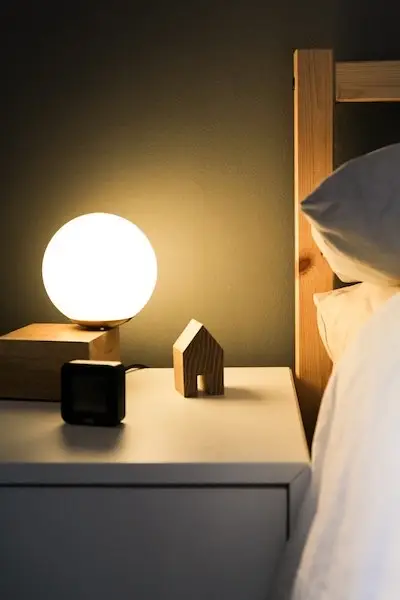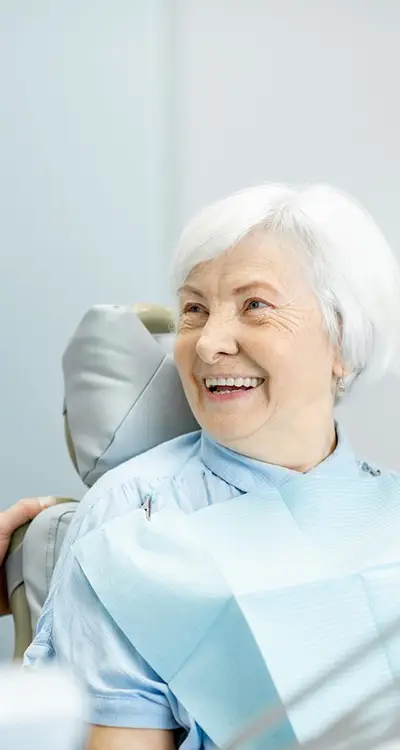
Sleep Apnea Mouth Guard Treatment
OBSTRUCTIVE SLEEP APNEA TREATMENT FOR ALASKA
Palmer Alaska Dentists Providing Sleep Apnea Oral Appliances
Get your best uninterrupted rest with sleep apnea mouth guards. These custom-crafted oral appliances offer a non-invasive alternative to traditional CPAP machines. Designed to reposition the jaw and tongue, they alleviate airway obstruction, ensuring smooth breathing throughout the night. Experience the freedom to travel without hassle, thanks to their portability. With adjustable settings tailored to your needs, they provide personalized relief for mild to moderate sleep apnea. Say goodbye to restless nights and awaken refreshed with sleep apnea mouth guards.
What is Sleep Apnea?
Sleep apnea is a common sleep disorder characterized by repeated pauses in breathing during sleep. These interruptions in breathing can last from a few seconds to minutes and may occur multiple times throughout the night. The two main types of sleep apnea are obstructive sleep apnea (OSA), caused by the relaxation of throat muscles, and central sleep apnea (CSA), caused by a lack of communication between the brain and the muscles that control breathing.
Symptoms of Sleep Apnea
- Loud snoring
- Pauses in breathing during sleep
- Gasping or choking during sleep
- Excessive daytime sleepiness
- Morning headaches
- Difficulty concentrating
- Irritability or mood changes

Different Types of Sleep Apnea
- Obstructive Sleep Apnea (OSA): OSA is a sleep disorder characterized by repetitive blockages of the upper airway during sleep, usually due to relaxed throat muscles. Symptoms include loud snoring, gasping for air during sleep, and daytime fatigue, increasing the risk of heart disease and stroke if untreated.
- Central Sleep Apnea (CSA): CSA is a sleep disorder where the brain fails to send proper signals to the muscles that control breathing. Unlike OSA, airway blockage is not the primary cause. Symptoms include periods of halted breathing during sleep, disrupted sleep, and daytime fatigue, often linked with heart failure or neurological conditions.
- Complex Sleep Apnea Syndrome: Complex sleep apnea syndrome occurs when someone has both obstructive and central sleep apnea. It presents challenges in diagnosis and treatment, as it requires addressing both the airway obstruction and the neurological component. Symptoms may include a combination of those seen in OSA and CSA, such as loud snoring, periods of halted breathing, and daytime fatigue.
How Does Sleep Apnea Effect Your Health?
- High Blood Pressure: The repeated drops in blood oxygen levels during sleep apnea can increase blood pressure and strain the cardiovascular system.
- Heart Problems: Sleep apnea is linked to an increased risk of heart disease, heart attacks, and strokes.
- Diabetes: People with sleep apnea are more likely to develop insulin resistance and type 2 diabetes.
- Weight Gain: Sleep apnea and obesity often go hand in hand, and weight gain can worsen sleep apnea symptoms.
What Benefits Do Sleep Apnea Oral Appliances Provide?
- Reduce the number of pauses in breathing (apneas) or episodes of shallow breathing (hypoapneas)
- Significantly improve blood oxygen levels
- Decrease the frequency and volume of snoring
- Reduce daytime sleepiness
How Our Dentists Treat Obstructive Sleep Apnea
Here at Evergreen Dental, our approach to treating Obstructive Sleep Apnea follows one of two approaches depending on patient needs and desires.
The first approach is simply starting with the fabrication of a Mandibular Advancement Device. This is the more “traditional” process and it is most often initiated when a patient receives a referral from their sleep physician requesting treatment with a Mandibular Advancement Device. This referral is brought to our office and the patient has an opportunity to ask question and make a plan with our dentists to create the appliance after it is determined that the teeth and jaw joints are in good condition to support the appliance. Fabrication begins with taking detailed Impressions of the patient’s teeth and jaw position. These are then sent out to the lab to fabricate the appliance from high-quality materials, ensuring both comfort and durability. The appliance is returned to the practice and then patient receives their appliance along with instructions on how to care for, use and adjustment of their appliance. Patients are encouraged to have annual follow up to insure the fit and integrity of the appliance over time.
The second approach used by our Dentists utilizes a method known as the “Seattle Protocol.” This protocol was formulated by Dr. Greggory Kinzer and Dr. Jeff Rouse and is taught through the Spear Dental Institute. This protocol is a multidisciplinary 6-step systematic approach to improving nighttime breathing. The protocol focuses on breathing habits and identifying the oral sleep appliance that is best suited to the patient’s specific condition. It also helps identify other medical areas specialties such as ENT, Oral Surgeon, Orthodontists, Allergists, and Myofunctional Therapists that can help treat the root cause issues associated with the breathing difficulties. The “traditional” approach is a one-size fits all approach, which ignores the fact that there are multiple reasons why a patient may not be breathing well and can fail to help identify minor factors that can easily be addressed to achieve huge improvement in breathing. The goal of the Seattle Protocol is to have a cost-effective way to identify the specific needs of the patient, gain resolution of the breathing issues and ultimately develop a plan to replace the appliance. This process utilizes a temporary oral appliance that can easily be used to simulate 5 different oral sleep appliances and assess their effectiveness. This allows for the identification of the least invasive and most effective appliance best suited to individual patient needs without having to fabricate every type of appliance with a dental lab. When the right appliance for the patient is identified, the temporary appliance is used to establish the jaw position in the fabrication of the final appliance. The appliance is then worn at night to help facilitate improved nighttime breathing. With the knowledge that the appliance treats the underlying causes of the breathing difficulties specific treatment options utilizing ENT, Oral Surgery, Orthodontics or Restorative Dentistry can be discussed and a plan made to achieve the results of the appliance without needing to wear it forever.
Sleep Apnea Treatment Options
- Mandibular Orthotic
- Create Space between teeth
- Give Tongue more space to get out of the airway
- Increase Oral Volume
- Anterior Positioning Splint
- Move jaw forward
- Pull tongue forward
- Further increase in Oral volume
- Dual Arch Splint
- Doubles space between teeth
- Gives even more tongue space
- Even more Oral Volume increase
- Dual Arch Repositioning Splint
- Double Space between teeth
- Bring lower jaw forward
- Pull tongue forward
- Further increase oral volume

Sleep Apnea Mouth Guards vs. CPAP Machine
Sleep Apnea Mouth Guards
- Non-invasive: Mouth guards are typically considered less invasive compared to CPAP machines, making them more comfortable for some users.
- Portable: Mouth guards are compact and easy to transport, allowing for more convenient use during travel or while away from home.
CPAP MACHINE
- High efficacy: CPAP machines are highly effective in treating sleep apnea by delivering a continuous stream of air to keep the airways open throughout the night.
- Customizable settings: CPAP machines often come with adjustable settings to tailor airflow and pressure levels to individual needs, ensuring optimal treatment efficacy.
Important!
The above is simply for comparison purposes, and in no way diminishes the importance of a doctor’s guidance as to what kind of treatment may be necessary for you.
If you think that you suffer from sleep apnea, it is important that you make an appointment with your doctor to make a plan for diagnosis and treatment.
Types of Sleep Apnea Mouth Guards
- Mandibular Advancement Devices (MADs): MADs are oral appliances designed to treat obstructive sleep apnea by repositioning the lower jaw forward during sleep, preventing airway collapse. They are custom-fitted by dental professionals and offer a comfortable and non-invasive alternative to CPAP therapy.
Sleep Apnea Mouth Guards FAQ
Do Sleep Apnea Mouth Guards Really Work?
Sleep apnea mouth guards have been clinically proven to effectively treat mild to moderate obstructive sleep apnea by repositioning the jaw or tongue to keep airways open during sleep, leading to improved breathing and reduced symptoms. However, their effectiveness may vary depending on the severity of the condition and individual factors.
How Long Do Sleep Apnea Mouth Guards Last?
The lifespan of sleep apnea mouth guards varies but typically ranges from 1 to 5 years depending on usage and maintenance. Regular cleaning and proper storage can help extend the lifespan of the mouth guard. It’s recommended to have periodic evaluations by a dentist to ensure the device remains effective.
How Much Do Sleep Apnea Mouth Guards Cost?
The cost of sleep apnea mouth guards varies depending on factors such as materials used, customization, and dental fees. On average, prices typically range from $800 to $4,000. Insurance coverage may also affect the out-of-pocket cost for patients. Consulting with a healthcare provider or dental professional can provide more specific cost estimates.
Sleep Apnea Mouth Guards Near Me
Looking for a reliable dentist to get you fitted with a sleep apnea mouth guard? Look no further! We’re right here in downtown Palmer, Alaska, ready to help you achieve a better night’s sleep. Come on in, and let’s get you on the path to a great nights rest!
What Other Palmer Residents Have to Say
“A relaxed and professional environment, friendly staff, and great dental work“
George Ethan Chapman

